Marines deploy to coroner’s office
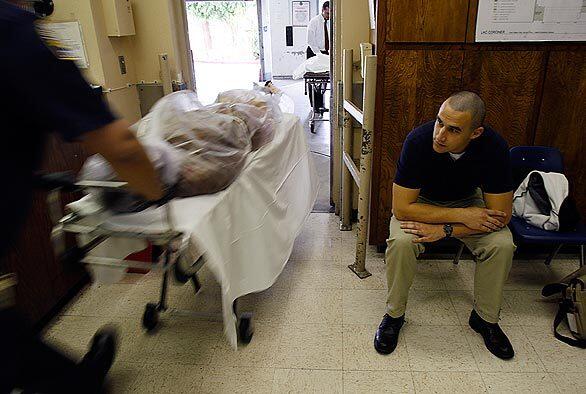
Marine Corps Reserve Lance Cpl. Matthew Barlow begins a shift at the Los Angeles County coroner’s office, where he was among 14 Marines embedded for three weeks to learn how to collect bodies and personal belongings and identify the dead. The troops are in a special unit that soon will deploy to Iraq, where they will receive the bodies of fallen troops and prepare them for the flight home to the United States. (Luis Sinco / Los Angeles Times)
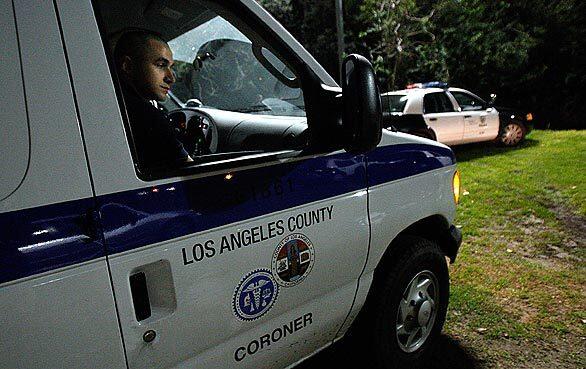
Barlow rides along with L.A. County coroner’s personnel to retrieve the body of a homeless man found in Hazard Park east of County-USC Medical Center in Boyle Heights. When he started training for the Marine Corps’ personnel retrieval and processing unit last summer, he hadnt had any personal experience with death no one close to him, not even a pet, had died. (Luis Sinco / Los Angeles Times)
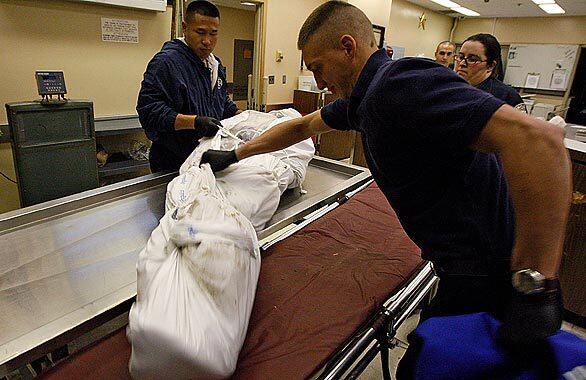
Marine Corps Reserve Sgt. Robert Lee, left, and Cpl. Robert Norton assist forensic attendant Wendi Withers with a body at the coroner’s morgue in Boyle Heights. Barlow looks on at rear. Before the Marines deploy to Iraq, where the scale of human trauma probably will be greater, the coroners office forced them to confront death its sights, its smells day after day. (Luis Sinco / Los Angeles Times)
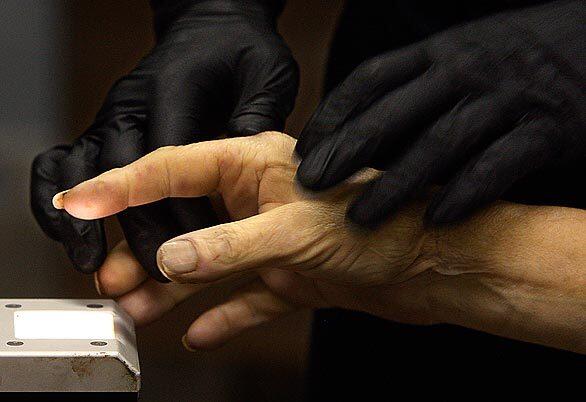
Norton wears gloves as he fingerprints a corpse at the coroner’s morgue. The bulk of the work for Marines in the specialty unit is similar to that of L.A. County’s forensic attendants: transporting the remains, taking basic measurements, snapping photographs to document the injuries and cataloging clothing. (Luis Sinco / Los Angeles Times)
Advertisement
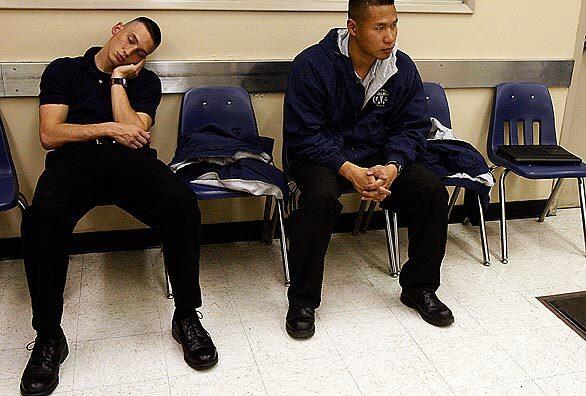
Norton, left, and Lee finish up a shift at the coroner’s office. Fred A. Corral, a lieutenant in the coroner’s investigations division and a former Marine, came up with the idea of embedding the Marines. We want to give them some presence of mind for what theyre dealing with out there, he said. (Luis Sinco / Los Angeles Times)
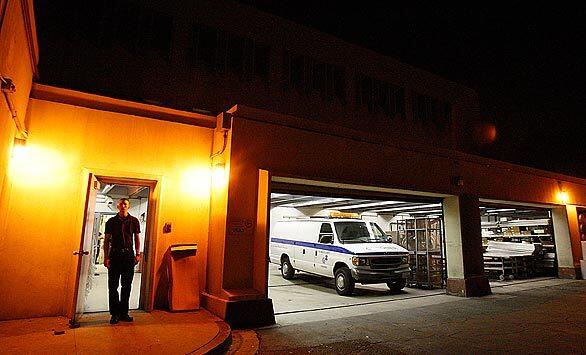
Norton pauses for some fresh air outside the coroner’s office. Although other units have spent short stints at coroners offices in several states, his group went through the longest, most intense training. When they get to Iraq, they will have just 24 hours to collect remains, pack them in ice and send them off to Kuwait. From there, the Air Force takes the remains to Dover Air Force Base in Delaware. (Luis Sinco / Los Angeles Times)







